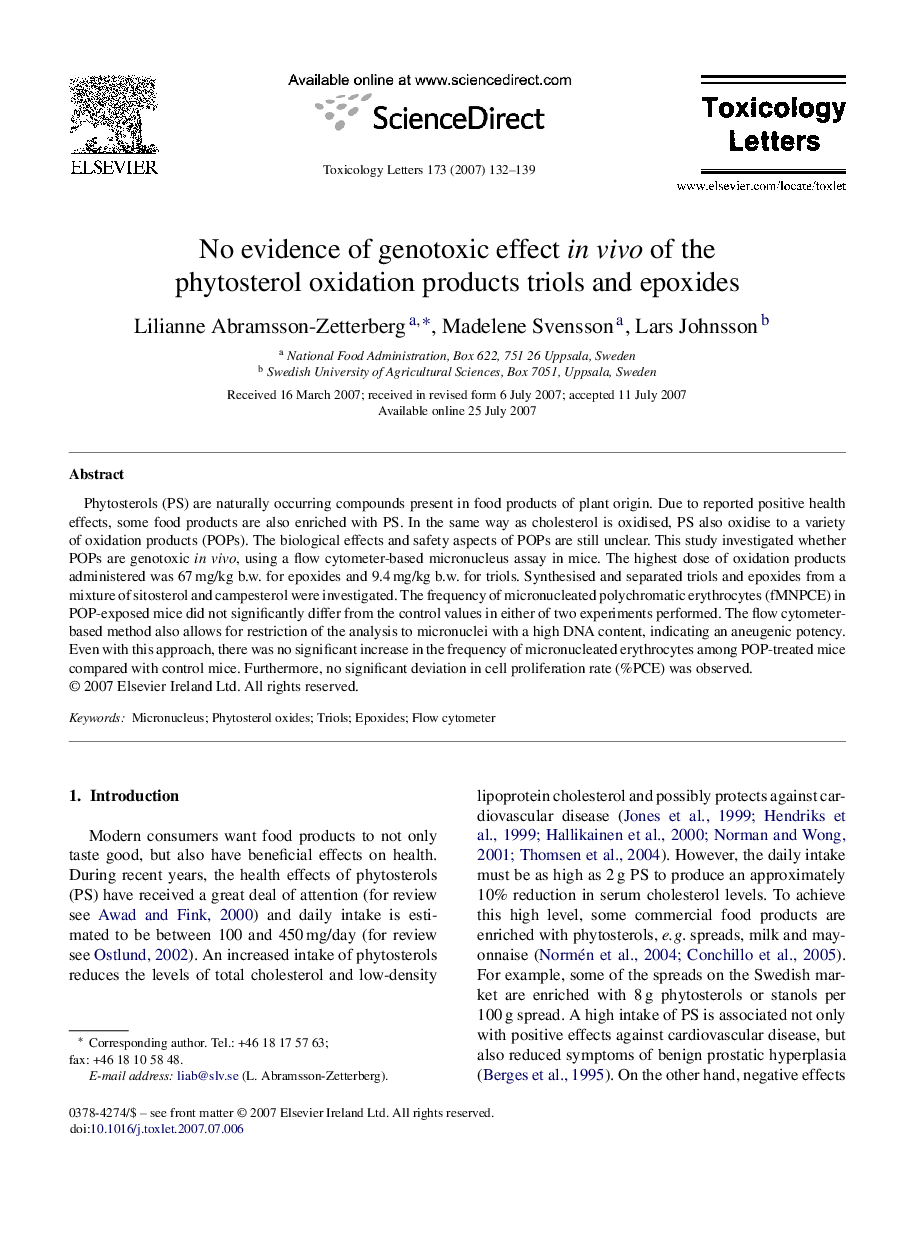| Article ID | Journal | Published Year | Pages | File Type |
|---|---|---|---|---|
| 2602160 | Toxicology Letters | 2007 | 8 Pages |
Phytosterols (PS) are naturally occurring compounds present in food products of plant origin. Due to reported positive health effects, some food products are also enriched with PS. In the same way as cholesterol is oxidised, PS also oxidise to a variety of oxidation products (POPs). The biological effects and safety aspects of POPs are still unclear. This study investigated whether POPs are genotoxic in vivo, using a flow cytometer-based micronucleus assay in mice. The highest dose of oxidation products administered was 67 mg/kg b.w. for epoxides and 9.4 mg/kg b.w. for triols. Synthesised and separated triols and epoxides from a mixture of sitosterol and campesterol were investigated. The frequency of micronucleated polychromatic erythrocytes (fMNPCE) in POP-exposed mice did not significantly differ from the control values in either of two experiments performed. The flow cytometer-based method also allows for restriction of the analysis to micronuclei with a high DNA content, indicating an aneugenic potency. Even with this approach, there was no significant increase in the frequency of micronucleated erythrocytes among POP-treated mice compared with control mice. Furthermore, no significant deviation in cell proliferation rate (%PCE) was observed.
